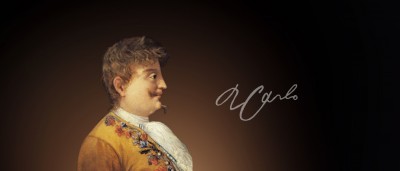Piano Player
Thelonious Monk taught himself to play the piano at age 6, and later toured as a church organist at 17. He learned by watching his sister play. By the time he was 13, he was competing in after-hours “cutting contests”. He was so good that he was banned from re-entering the weekly amateur music contests at the Apollo Theater, because he had won it too many times. He later developed much of his style (the Harlem Stride) by playing at Minton’s in Manhattan with other famous musicians at the time. Monk’s manner of playing jazz music was radical and unconventional, for which he was both criticized and praised.
The Creation of Bebop
Monk’s work at Minton’s was crucial as one of the greatest influences in the creation of bebop in the 1940s, alongside Charlie Parker, Dizzy Gillespie and Miles Davis. Mary Lou Williams spoke of Monk’s unique inventiveness and it was thus common for other boppers to steal Monk’s ideas without giving him due credit. “I’ve seen guys at Minton’s busily writing his ideas on their shirt cuffs or the tablecloth. Why, they even stole his idea of a beret and bop glasses.”
Recognition
Monk’s work was not widely recognized until the release of his album “Brilliant Corners” in 1956, his first true jazz music masterpiece. With the newfound popularity, he toured the United States and Europe, and eventually signed a contract with Columbia Records in 1962. To this day, he remains one of five jazz musicians to ever be on the cover of Time Magazine. In 1993 Monk was awarded a Grammy Lifetime Achievement Award, and in 2006 he was awarded a Pulitzer Prize for “a body of innovative musical composition.”
Mental Health Struggles
“Eccentric” and “unique” are words that describe both the musical style of Monk as well as his personality. Unfortunately, some of his unusual behaviour has been attributed to his increasing struggle with mental health. Although his diagnoses were never made public, there were signs of bipolar disorder or schizophrenia. He was prescribed antipsychotics and lithium, which may have caused his health to further decline later in life.
Final Years
The documentary film “Straight no Chaser” (1988) hints that Monk’s erratic behaviour was caused by mental illness. In the film, Monk’s son said his father sometimes did not recognize him, and was hospitalized several times for mental episodes. Monk retired in the early 1970s and spent his last 6 years as a guest of his long-standing patron Pannonica de Koenigswater. Monk fell ill and passed away from a stroke on February 17, 1982.
We are honoured to feature some of Thelonious Monk’s spectacular jazz music performances on Calm Radio’s Jazz Piano channel. Listen for free.




